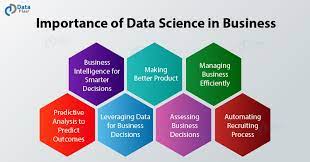Data has become a key asset for businesses in today’s digital world. It is a valuable resource that can be used to make decisions, improve processes, and create competitive advantages. With the right data, businesses can gain insights into customer behavior, identify trends, and develop strategies that will help them stay ahead of the competition.
Data is everywhere. It is collected from customers, competitors, and the market. Companies can use this data to inform decisions, understand customer needs, and create better products and solutions. Big data has quickly become an indispensable tool for businesses in the modern world. It allows companies to collect, store, and analyze large amounts of data to make more effective business decisions. By utilizing big data effectively, businesses can make better decisions that can lead to increased profits and customer satisfaction.
What is Data that is Used by Businesses Worldwide?

Data is an invaluable asset for businesses worldwide. It helps to inform decisions, drive innovation and improve operational efficiency. Data is used for a variety of purposes, ranging from marketing and customer service to risk management and process optimization.
At its core, data is simply information. It can come from internal sources such as employee records, accounting software, and customer feedback or from external sources such as market research, competitor analysis, and social media. Data is collected from multiple sources, analyzed, and used to make informed decisions.
How do businesses use this Data for their Profit?

One of the primary ways that businesses can use big data to make effective decisions is by analyzing customer behavior. Companies can use big data to gain insights into how customers interact with their products and services. Companies can use this data to better understand customer preferences, buying habits, and other customer behaviors. This can help businesses better tailor their products and services to meet customer needs, leading to increased customer satisfaction and loyalty.
Data can also be used to create efficiencies in business processes. By analyzing data, businesses can identify areas where they are wasting resources and make changes to improve their operations. This can lead to cost savings and improved customer satisfaction. Businesses can also use data to develop targeted marketing campaigns. By understanding customer preferences and demographics, businesses can create campaigns that are tailored to their target audience. This can lead to more successful campaigns and increased ROI.
Data-driven businesses use data to gain insights into their customers, operations, and competitors. For example, they can use customer data to gain insights into customer behavior and preferences to inform the development of new products and services. They can use operational data to identify process inefficiencies and optimize their operations. And they can use competitor data to gain a competitive edge in the market. Data can also be used to uncover patterns and correlations that may otherwise be difficult to detect. For example, by analyzing customer data, a business can identify customer segments, which can be used to target campaigns and develop better products and services.
Big data can also be used to analyze market trends. Companies can use this data to better understand the competitive landscape, identify new opportunities, and develop strategies to succeed in the market. This can lead to increased profits and a better understanding of the industry. Big data can also be used to track and monitor performance. Companies can use big data to measure the success of their products and services, as well as their overall performance. This data can be used to identify areas where improvements can be made and to develop strategies to optimize performance.
Finally, big data can be used to improve decision-making. Companies can use the insights gained from big data to make more informed decisions. This can help businesses make better decisions faster, leading to increased profits and customer satisfaction.
Importance of Data for Businesses

Data is the lifeblood of any business. It helps to drive decisions, inform strategies, and increase efficiency. The importance of data for businesses can’t be overstated. Companies of all sizes, from large corporations to small startups, need data to make informed decisions, optimize operations, and identify opportunities for growth.
Data can provide valuable insights into customer behavior, giving companies the information they need to create targeted marketing campaigns and identify areas of improvement. It can also be used to measure the success of campaigns and track customer journeys, enabling businesses to adjust their strategies accordingly. By tracking data, businesses can analyze trends and develop strategies to meet customer needs and remain competitive in their respective markets.
Data is also essential for optimizing operations. Companies can use data to identify bottlenecks and inefficiencies in their processes and eliminate them. This can result in significant cost savings and improved efficiency. Additionally, data can be used to measure KPIs and analyze performance, enabling businesses to make informed decisions about how to allocate resources and achieve their goals. Data can also help businesses identify new opportunities for growth. By analyzing customer data and trends, companies can determine areas of potential growth and develop strategies to capitalize on them. Data can also be used to develop better products and services, allowing businesses to stay competitive and respond to customer needs.
In Conclusion:

In conclusion, leveraging big data for more effective business decisions is a powerful tool to gain a competitive advantage. It can provide organizations with the insights they need to make better decisions and keep up with the ever-changing business landscape. With the right data, businesses can identify trends, uncover opportunities, and make more accurate predictions. By utilizing big data, businesses can gain a better understanding of their customers, the market, and their own processes. Additionally, they can use big data to identify risks and optimize their operations. When used correctly, big data can be an invaluable asset to any organization looking to make better decisions and remain competitive.















